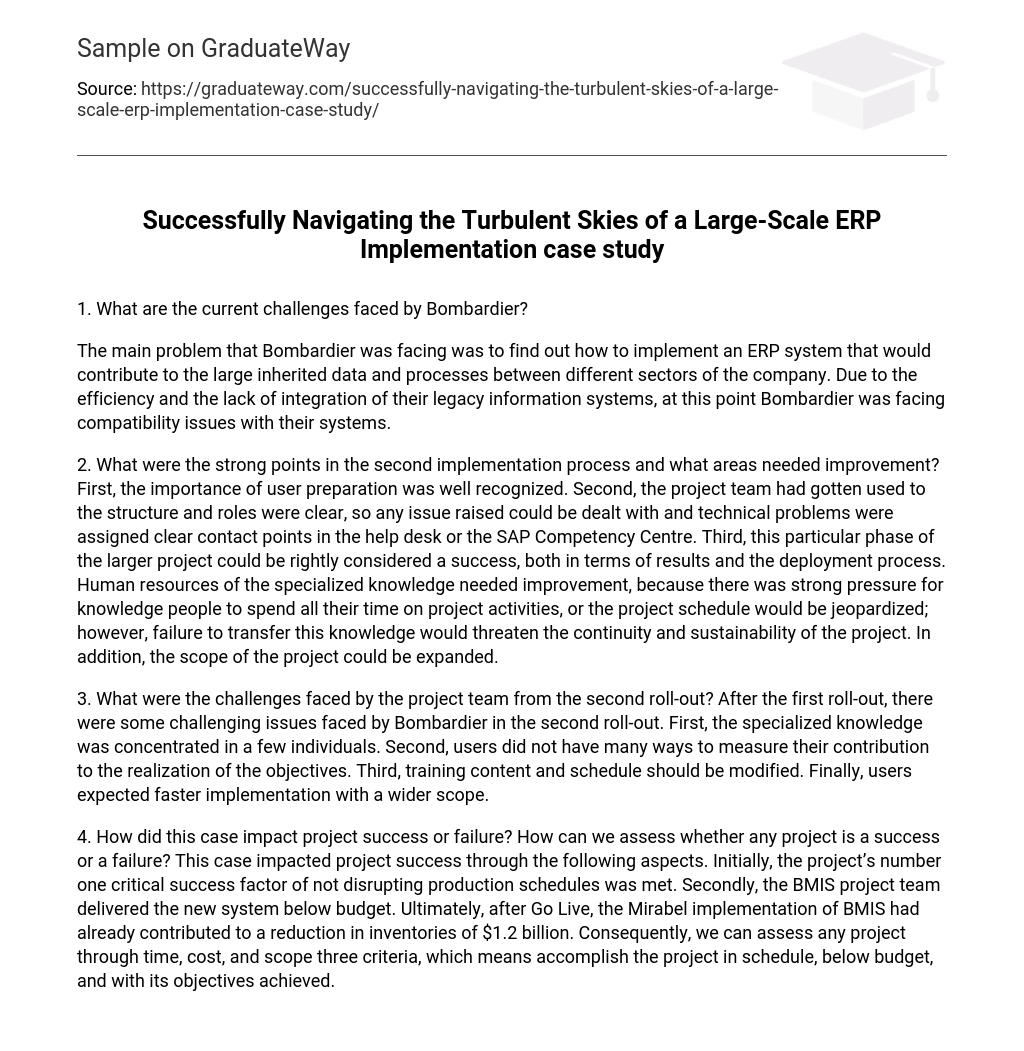1. What are the current challenges faced by Bombardier?
The main problem that Bombardier was facing was to find out how to implement an ERP system that would contribute to the large inherited data and processes between different sectors of the company. Due to the efficiency and the lack of integration of their legacy information systems, at this point Bombardier was facing compatibility issues with their systems.
2. What were the strong points in the second implementation process and what areas needed improvement? First, the importance of user preparation was well recognized. Second, the project team had gotten used to the structure and roles were clear, so any issue raised could be dealt with and technical problems were assigned clear contact points in the help desk or the SAP Competency Centre. Third, this particular phase of the larger project could be rightly considered a success, both in terms of results and the deployment process. Human resources of the specialized knowledge needed improvement, because there was strong pressure for knowledge people to spend all their time on project activities, or the project schedule would be jeopardized; however, failure to transfer this knowledge would threaten the continuity and sustainability of the project. In addition, the scope of the project could be expanded.
3. What were the challenges faced by the project team from the second roll-out? After the first roll-out, there were some challenging issues faced by Bombardier in the second roll-out. First, the specialized knowledge was concentrated in a few individuals. Second, users did not have many ways to measure their contribution to the realization of the objectives. Third, training content and schedule should be modified. Finally, users expected faster implementation with a wider scope.
4. How did this case impact project success or failure? How can we assess whether any project is a success or a failure? This case impacted project success through the following aspects. Initially, the project’s number one critical success factor of not disrupting production schedules was met. Secondly, the BMIS project team delivered the new system below budget. Ultimately, after Go Live, the Mirabel implementation of BMIS had already contributed to a reduction in inventories of $1.2 billion. Consequently, we can assess any project through time, cost, and scope three criteria, which means accomplish the project in schedule, below budget, and with its objectives achieved.





